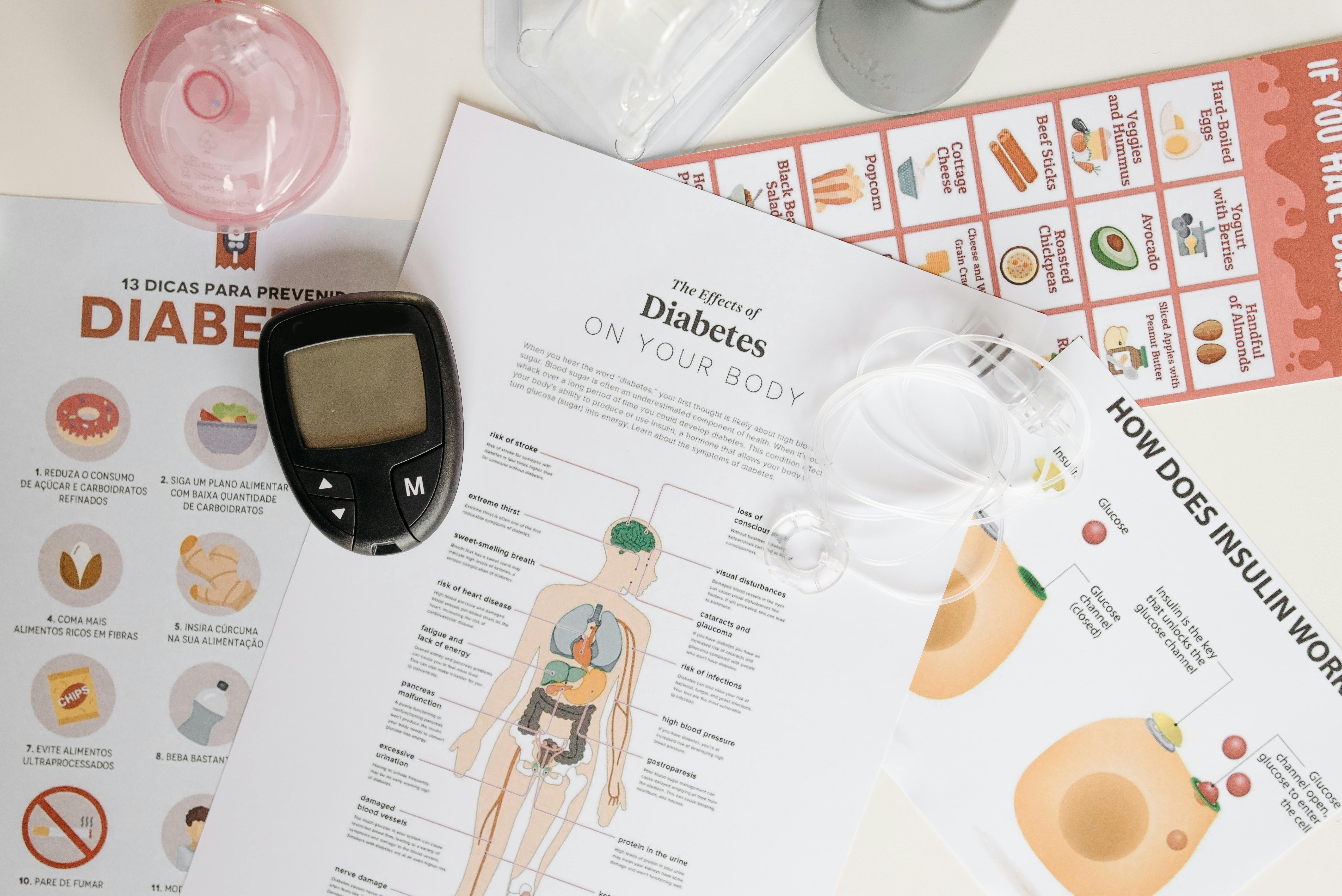Lifestyle choices play a crucial role, but how so?
- Regular exercise, a balanced diet, hydration, sleep, and stress management are essential for a healthy lifestyle.
- Healthy lifestyle choices can prevent diseases like diabetes and heart disease.
- A balanced diet provides essential nutrients, reducing disease risk.
- Developing healthy eating involves incorporating more whole foods, meal planning, and cooking at home.
- Foods beneficial for health include leafy greens, berries, whole grains, nuts, and fatty fish.
- Regular physical activity reduces chronic disease risks; aim for 150 minutes of moderate exercise weekly.
- Cardiovascular exercises like walking and cycling benefit heart health.
- Stress management and mental health are vital for physical well-being.
- Avoiding high-risk behaviors such as smoking and excessive drinking boosts long-term health.
- Sleep is crucial for physical recovery and maintaining energy; improve by establishing a routine.
Ever wonder how your everyday choices impact your health? It's fascinating how lifestyle habits can ward off chronic diseases. By focusing on healthier routines, you not only boost energy but also reduce illness risks. Discover how your choices shape wellness and learn simple steps to change your life today. Ready to dive into the essentials of a life-saving lifestyle? Let's explore these vital habits together.
How Do Healthy Lifestyle Habits Impact Disease Prevention?
What are the essentials of a healthy lifestyle?
First, regular exercise is vital. Moving our bodies makes our hearts stronger and muscles healthier. Second, a balanced diet full of fruits, vegetables, lean meats, and whole grains keeps our bodies running well. Drinking lots of water is key too. Sleep is another essential. Our brains need rest to think and learn every day. Managing stress is important as well. Things like yoga or walking outside can help our minds stay calm.
How do lifestyle choices prevent chronic diseases?
Healthy choices can stop diseases like diabetes or heart disease. Eating well keeps our blood sugar and cholesterol at good levels. Exercise helps our hearts and bones become strong, lowering the risk of diseases. Getting plenty of sleep keeps our immune systems strong. Good sleep helps when fighting off illnesses. Avoiding things like smoking and too much alcohol is crucial. Smoking can damage our lungs and heart. Drinking too much alcohol can harm our liver.
What is the connection between lifestyle and overall health?
Everyday lifestyle choices affect how we feel and function. A study shows that good habits lead to better health. Choices like eating nutritious meals and staying active affect our energy. They also impact our mood and focus. Making health-conscious decisions helps our bodies handle stress better. They also boost our immune systems and can lessen the risk of certain cancers. Our health truly reflects what we do daily.
What Role Does Diet Play in Preventing Health Conditions?

Why is a balanced diet crucial for disease prevention?
A balanced diet is like a shield against many diseases. It provides the body with nutrients needed to stay strong and healthy. These nutrients come from eating different foods such as fruits, vegetables, grains, proteins, and dairy. Each food group offers vitamins, minerals, and other essentials. They all work to keep the cells and tissues in top condition. Without this mix, your health can weaken, allowing diseases to take hold. For example, a diet low in fruits and vegetables can contribute to heart issues and some cancers. A balanced diet acts as your first line of defense in disease prevention.
How can one develop healthy eating habits?
You can start by making small, steady changes to your meals. Focus on adding more fruits and vegetables to each meal. Try swapping out processed foods for whole options like whole grains and lean proteins. Keeping a meal plan can help, so you don’t reach for junk food when hungry. Cooking at home more often allows control over what goes into your food. It helps manage portion sizes and cuts down on unhealthy ingredients. Sharing meals with family and friends can make healthy eating a fun activity too. Remember, it’s about creating a sustainable habit, not a quick fix.
What foods help reduce disease risks?
Certain foods are known to provide extra protection against diseases. Leafy greens, like spinach and kale, are super nutritious and can support heart health. Berries are full of antioxidants, helping fight off harmful substances in the body. Whole grains, such as oats and brown rice, are great for maintaining a healthy heart and good digestion. Nuts, like almonds and walnuts, offer healthy fats that protect the heart and brain. Fish, especially fatty types like salmon, are rich in omega-3s, supporting brain and heart function. By adding these foods to your diet, you can lower the risk of many health issues. For important insights on diet and health, see this study.
How Does Exercise Influence Health?

Regular exercise boosts health in many ways. It strengthens your heart, lungs, and muscles. Exercise can even improve your mood and help you sleep better. Staying active is a powerful tool to prevent diseases. Heart disease, diabetes, and depression are less common in active people.
What are the benefits of regular physical activity?
Regular physical activity cuts the risk of chronic conditions. Exercise helps control weight, lowers blood pressure, and improves cholesterol levels. Engaging in physical activity boosts your body's defenses against illness. Moving your body strengthens bones and improves balance. As a result, falls and fractures happen less often.
How much exercise is recommended for optimal health?
For optimal health, aim for at least 150 minutes of moderate exercise weekly. This means about 30 minutes, five days a week. Moderate activities include walking briskly, swimming, or riding a bike. Vigorous activities require more effort, like running or aerobics. If you choose vigorous activity, aim for 75 minutes a week. You can combine different exercises throughout the week to reach your goal. Find an activity you enjoy to make it a fun habit.
What kinds of exercises are most beneficial for heart health?
Cardiovascular exercises keep your heart strong. These exercises include walking, running, swimming, and cycling. Aim to raise your heart rate during these activities. Precision: Cardio workouts lower the risk of heart disease. They improve circulation, reduce blood pressure, and manage weight. To benefit your heart, switch between aerobic and strength training. Aerobic exercise conditions your heart and lungs. Strength training boosts muscle, bone health, and metabolism. Each type complements the other, giving you balanced health.
This source provides more insights on exercises and their benefits. Don't wait to feel pain to start exercising. Begin today and let your body enjoy the wide-ranging rewards. Your lifestyle shapes your health, and exercise is a key piece of the puzzle.
What is the Importance of Mental Health in Lifestyle Choices?

Mental health shapes how we respond to life. It influences our well-being and decision-making. How does stress affect physical health? Stress can make your heart pound and muscles tense. It harms sleep and can weaken your immune system. Over time, stress may lead to serious health problems, such as heart disease or high blood pressure.
Stress management strategies are key to good mental health. Let's consider some effective ones. Exercise is great! It can lift your mood and ease anxiety. Deep breathing works well too. It helps calm the mind and body. Time with friends can also reduce stress. Feeling connected to others boosts happiness. There is also the possibility to explore expert resources that provide in-depth information on stress management.
But why is mental health a key component of a healthy lifestyle? Mental health affects many areas, including physical health. When you feel good, you are more active and optimistic. Taking care of mental health encourages better self-care. Individuals eat healthier, sleep better, and stay active. This kind of balance strengthens resilience to stress.
Building resilience to stress is like training muscles. It is a way to cope with challenges and return strong. Start small by setting achievable goals. This helps us gain confidence. Having a routine provides stability in daily life. Mindfulness, which keeps one present, is also beneficial. As you grow resilient, stress becomes less overpowering.
Each step taken to improve mental health counts. Habits matter. They are lifestyle choices that can inspire meaningful change. Every day offers a fresh start. Change doesn’t happen overnight, but small changes can lead to greater well-being. Prioritizing mental health promotes overall health, thus playing a crucial role in preventing health conditions.
How Can Avoiding High-Risk Behaviors Improve Health?

When I think about staying healthy, avoiding high-risk behaviors comes to mind. But what does that mean exactly? Let's break it down. High-risk behaviors often include smoking and drinking too much. These habits can lead to serious health problems.
What are common high-risk behaviors affecting health?
Common high-risk behaviors that affect health include smoking and heavy drinking. Smoking is not just a bad habit; it harms almost every organ. Heavy drinking can damage the liver and increase the risk of accidents. Both can shorten your life. Avoiding these behaviors can lead to a longer, healthier life.
How can smoking cessation positively impact health?
Quitting smoking can greatly improve health. When you stop smoking, your health begins to improve almost right away. Within days, your heart rate lowers, and breathing improves. Over time, quitting reduces the risk of heart disease, cancer, and lung problems. In fact, smokers who quit by age 30 reduce their risk of dying early from smoking-related diseases by more than 90%.
For those thinking of quitting, there are many tips to help. Find a reason to quit that is important to you. This might be family, your health, or your savings. Set a quit date and stick to it. Get support from friends or use online resources. The journey might be hard, but the rewards of quitting are great.
What are the recommended alcohol consumption guidelines for maintaining health?
Drinking guidelines suggest staying within recommended limits for health. For most, this means up to one drink a day for women and up to two drinks a day for men. A drink could be a glass of wine, a beer, or a shot of liquor. Importantly, some should not drink at all, like those underage or with certain health conditions.
Following drinking guidelines is important for several reasons. Staying within these limits lowers the risk of liver damage and accidents. For older adults, it can also reduce the risk from conditions related to alcohol, like heart problems. This might be surprising, but even moderate drinking increases cancer risk. Keeping an eye on drinking habits is key to living well and staying healthy.
In What Ways Does Sleep Contribute to Health?

What is the relationship between sleep and physical wellbeing?
Sleep helps our bodies heal and grow. It impacts how we fight germs. When we rest, our muscles repair, and energy restores. Lack of sleep can make you feel weak and slow. Not sleeping enough increases the risk of getting sick. Quality sleep is vital for good physical health.
How can one improve sleep quality?
To sleep better, create a relaxing bedtime routine. Try to go to bed at the same time. Keep your bedroom dark and quiet. Avoid drinks with caffeine in the evening. Exercise during the day, but not too close to bedtime. This will help you sleep easier. Establishing these habits makes it easier to fall asleep.
How does lack of sleep contribute to a sedentary lifestyle?
When you do not sleep well, you may feel tired during the day. This can make you not want to move a lot. Your body's need for energy changes, making you prefer resting more. This can lead to sitting too much, which is not good for health. A sedentary lifestyle is linked to health issues, like heart problems and weight gain. Without proper rest, you may not have enough energy for activities. Sleep problems could make it hard to stay active. Engaging in physical activities can be a challenge if you feel exhausted every day.
Conclusion
Healthy habits can keep disease away. Eating right, moving daily, and resting enough protect your body. What you choose to eat matters. Pick balanced meals full of nutrients to stay strong. Exercise helps your heart and overall health. Manage stress and keep a healthy mind—they affect your body too. Avoid risky choices like smoking and limit alcohol for your best health. Prioritize good sleep to feel energetic. Small changes lead to big health rewards. Practice healthy habits every day to enjoy life and keep diseases at bay.



